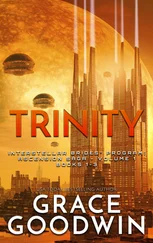“Are you a believer, admiral?” the successor asked abruptly.
“A believer?” Harpoon repeated, mystified.
“In the Lord.”
Harpoon blinked at him.
Admiral?”
“There are no atheists in foxholes, sir,” Harpoon said limply. “We are in one very large foxhole.”
“Good.” The successor beamed. “I hope you took advantage of this lull to pray. I did. I feel much better.”
Harpoon looked around the room for help. He found none. The successor shifted gears rapidly. “Okay,” the man said, “now that you gentlemen have finished with the melodrama, how do we win this war?” Harpoon made no reply. His mind spun. He stared into the man’s calm and confident face, trying to keep the consternation off his own, and turned slowly back to his maps.
A deep and foreboding sense of futility swept over the admiral. He felt trapped between the successor’s dangerously simple certainty, which had returned so abruptly, and the system’s dangerously complex certainty, which never changed. Harpoon was losing to both—and he knew it. He also knew the stakes.
“SIOP,” he began slowly, “was devised shortly before the Cuban missile crisis. It means Single Integrated Operating Plan and was devised to coordinate all the nuclear forces at our command. We could not have a submarine striking a target that a bomber had struck earlier or a bomber attacking a target that had been destroyed by an ICBM. Over the years, as both the Soviet and our forces became vastly more complex, the system necessarily became highly computerized.”
The admiral heard an impatient rustle behind him. “Don’t need a history lesson, Harpoon,” the successor said curtly.
“You may need everything you can get, sir.” Harpoon surprised himself with the directness of his reply. He continued without turning from the maps.
“By the beginning of this decade, we had more than forty thousand targets and innumerable combinations of options programmed into the computers. Clearly, no man or staff of men could possibly handle such complexities in the minutes available in a nuclear crisis. We had serious doubts that a national leader could make a decision to respond at all, let alone order a balanced response, in the time available to him. Indeed, that is what happened…”
“Are you tellin’ me that the President…”—the successor fumbled—“my predecessor did not respond…?” His voice had gone sullenly incredulous.
“I am saying, sir,” Harpoon replied, and now the impatience was creeping into his voice, “that the President had four minutes. He was aware that our early-warning system had sounded many false alarms. He was faced with a somewhat confusing attack without absolute confidence it was real. He absorbed the first missile landings. From our vantage point in Omaha, he responded slowly. In retrospect, I believe he acted reasonably.”
“Reasonably.” The successor’s single word cut through the purr of the engines, and all eyes in the compartment swung toward Harpoon.
“Yes, sir,” Harpoon replied, his voice unyielding. “We have a partial transcript of a hotline message—perhaps a disingenuous message—from the Premier. You might want to read—”
The colonel cut in abruptly. “I would be happy to help you interpret it,” he said.
Harpoon turned with methodically slow intimidation toward the jarring voice. “Colonel,” he said icily, “I would appreciate it if you would allow me to proceed uninterrupted. The message was quite simple. Perhaps simple-minded. I cannot judge that. I doubt you can, either.” Harpoon shifted his gaze to the successor. “The Premier contended that the more militaristic elements within his government were pushing him into a total preemptive attack on us. He chose a limited attack on military installations instead. For what it’s worth, and I certainly don’t know what to make of it, he offered to accept an equal amount of damage in the Soviet Union.” Harpoon immediately regretted his phrasing.
“A relatively even exchange,” the successor interjected caustically.
“It was a damned foolish and incredibly dangerous thing to do,” Harpoon tried to recoup. “I can’t assess his motives. He claimed that our government had squeezed the Soviets too long and too hard and that they couldn’t—or wouldn’t—accept it any longer.”
The colonel could not control himself. “You are describing our national policy, admiral,” he blurted. “It surely is not an uncivilized one. It is in man’s nature to cage a dangerous animal—to lock up a sociopath, whether a single political assassin or a nation of geopolitical assassins.”
Harpoon made a half-turn back toward the colonel, leveling his light pointer at him. The beam glittered off one lens of his glasses. “You and I are not politicians,” he said briskly. “I do Slink we can safely make the observation, without engaging in pseudo-Freudian analyses of long winters, that caging a nation with twenty thousand nuclear weapons was a policy with some risks.” The admiral heard a mirthless chuckle behind him. His shoulders tightened.
“The colonel’s observations seem to make you nervous, Harpoon. I believe I could use the advice of a man who is expert in these matters.”
Crap. Expert in Dostoyevsky and obscure Kremlin right-wingers. “You are the Commander-in-Chief,” he replied as evenly as he could. “You may have the advice of anyone aboard this aircraft—or anyone we can reach on the radio, damned few that they are at the moment. Would you like to be briefed by someone else?”
“Oh, no, not at all.” The successor’s words cut through the admiral. “I am learning far more than I expected.”
Harpoon stared into the red splotch that had been Seattle and, across Puget Sound, the Bremerton-Bangor naval complex. He had spent one long shore-duty tour there and his only son had fallen in love with the Nordic beauty of the alpine mountains and the fjordlike waters. After college, the boy had returned. To make missiles for Boeing. And make his only grandson. The missiles had given them a house on the water, a sailboat, annually recycled automobiles, and a carefree future in the place his son called the Land of the Lotus Eaters. Carry on, Gramps.
“It became clear long ago that the SIOP computer could not be secured from any major attack. Therefore, we began programming it to devise multistage responses that would be carried out twelve to twenty-four hours after its destruction. After the death of the President, for that matter. And after the destruction of most of our means of communicating with our forces. That meant we could issue orders that would be carried out after the disappearance of both our national leadership and our national communications system. It was a major advance. A rather dangerous one. But not all that much more dangerous than the hair-trigger system we already had in place. All our strategy, after all, was a bluff. The escalation of SIOP’s responsibilities was the ultimate bluff. The Soviets, as they always did, developed a similar system.”
Harpoon paused very briefly, taking a deep breath.
“Tonight, the strategy was relatively simple. Our ICBM’s were launched in two waves more than four hours ago. We held our weapons in Europe, awaiting any Soviet move. Those are programmed to go on provocation. Their launching, of course, would mean the total retaliatory destruction of Western Europe. Our bomber forces were ordered into the air as the first wave arrived. They constitute our second strike, a rather limited one. The surviving bombers will arrive on target in four to six hours. The bulk of our submarine forces, in which we carry most of our destructive power, was placed on hold for fifteen hours. They constitute the third strike. Their instructions are to hit their targets massively unless they receive contrary orders, the assumption being that if they can’t hear us, we’re still at war. That would complete the destruction of the Soviet Union.”
Читать дальше












